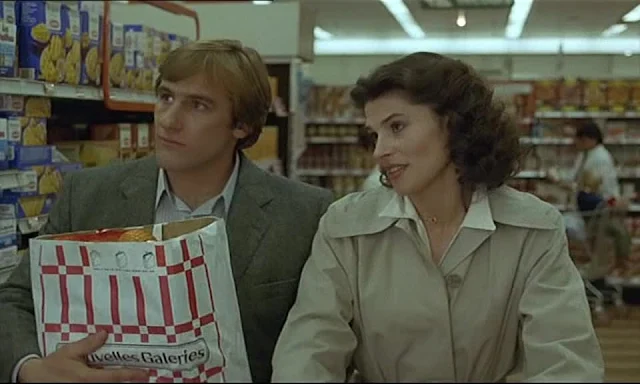 |
| Jean Keraudy, Marc Michel, Philippe Leroy, Raymond Meunier, and Michel Constantin in Le Trou |
All prison break movies have to be judged by the standard set by Robert Bresson's 1956 masterpiece A Man Escaped. Most of them are found wanting, but Jacques Becker's last film, Le Trou, though it lacks Bresson's moral intensity and political significance, makes a good try at it. What Becker's film has going for it is a fine ensemble of actors, including one of the men who participated in the attempted prison escape in 1947 on which José Giovanni based the novel that Becker turned into a film. Under a screen name, Jean Keraudy, Roland Barbat not only plays the prisoner Roland Darbant but also introduces the film as a "true story." This touch of documentary realism gives Le Trou a solid grounding, and Becker uses it to great effect, especially in a long take in which the prisoners break through the subflooring of their cell into the basement beneath. For a long time we see them hammering away almost ineffectively at the concrete, but just as we fear that this is going to be like watching paint dry, the seemingly impervious substance begins to chip away, revealing the larger rocks and looser material underneath. It's a tour de force of sorts, because the concrete must have been poured especially for the filming and designed to resist the hammering just enough to build suspense. What plot there is other than the elaborately detailed escape focuses on Claude Gaspard (Marc Michel), a young prisoner who is moved into the cell after the other four have already made their plans for the escape. Initially they mistrust the newcomer, but he earns their acceptance -- up to a point. The film eschews a music soundtrack, relying instead on the sounds of the prison for atmosphere. There are some darkly comic moments, as when two of the prisoners, having made it into the basement, have to hide from guards making their rounds. We don't see how they do it at first, but then it's revealed that one of the prisoners is standing on the shoulders of the other, dodging the patrol behind a convenient pillar, around which they just barely manage to make their way as the guards circle it. In hindsight, there are lots of things to cavil about, such as how the escape plan was devised and the necessary tools acquired -- matters that A Man Escaped details more interestingly -- but Le Trou holds up well while you're watching it, relying on solid characterization and vivid details to disarm skepticism.

